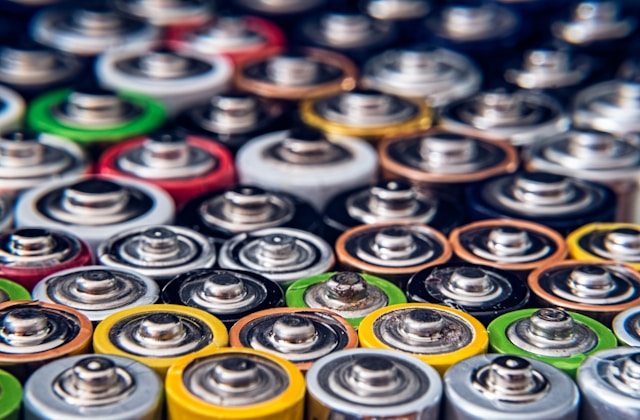
Key Takeaways:
- Understanding battery recycling can significantly contribute to sustainability in the energy sector.
- Recycling batteries reduces environmental harm and promotes circular economy principles.
- Innovative technologies are enhancing the efficiency and effectiveness of battery recycling.
- Global initiatives reflect an increasing emphasis on and investment in battery recycling.
- Consumer engagement is essential in driving the success of battery recycling programs.
Table of Contents:
- Understanding Battery Recycling
- The Cycle of a Recycled Battery
- Economic Benefits of Battery Recycling
- Environmental Impacts and Sustainability
- Technological Advances in Battery Recycling
- Global Trends in Battery Recycling
- Consumer Participation in Battery Recycling
- Conclusion
Understanding Battery Recycling
The rise of renewable energy sources has significantly increased battery use. These powerhouses store and provide energy from household electronics to electric vehicles. However, responsible disposal becomes a concern as batteries end their life cycle. Recycling batteries, including car batteries Stoystown, is essential for recovering valuable materials and enabling them to serve a new purpose. This process not only combats the growing electronic waste dilemma but also supports the regenerative cycle of battery use.
When recycled, batteries are first sorted according to type and size. Lead-acid car batteries, for example, are kept separate from nickel-cadmium or lithium-ion batteries due to the different recycling methods required for each type. The batteries are then broken down, and the recyclable materials, such as plastics and metals, are processed for reuse in new products. Throughout this process, a focus on safety and efficiency is paramount to extract the maximum value from each battery while minimizing environmental risk.
The Cycle of a Recycled Battery
The journey of a recycled battery begins at the collection point. After being dropped off by consumers at designated recycling centers or collection events, batteries enter a complex chain of processing steps. During these stages, they are dismantled, and the recoverable materials like lead, plastic, and electrolytes are separated. This is a meticulous process, often requiring manual labor coupled with the precision of automated machines. The ultimate goal is to salvage as much reusable material as possible while safely disposing of or treating the non-recoverable elements.
Economic Benefits of Battery Recycling
Battery recycling doesn’t just support environmental initiatives; it also makes economic sense. Extracting materials from used batteries is often a fraction of the cost of mining raw materials. Therefore, utilizing recycled materials directly influences reducing production costs for battery manufacturers. This correlation stimulates an economic incentive to invest in recycling technologies and infrastructures. Furthermore, as recycled batteries re-enter the market, they present a cost-effective alternative for consumers without compromising quality or performance.
Environmental Impacts and Sustainability
The environmental benefits of battery recycling are extensive. By diverting batteries from landfills, we prevent toxic substances from contaminating soil and water sources. These actions are vital to ecosystem preservation and public health safeguarding. Moreover, using recycled materials significantly decreases the need for new resource extraction, reducing the environmental strain caused by mining operations, such as habitat destruction and greenhouse gas emissions. As the demand for batteries continues to soar, particularly for renewable energy storage, the significance of sustainable resource management becomes increasingly critical. Through battery recycling, we can mitigate the impact of our energy storage needs on the planet.
Technological Advances in Battery Recycling
Technological progress is revolutionizing battery recycling. Recent developments have yielded sophisticated techniques for extracting high-purity materials from old batteries. For instance, advanced sorting technologies improve the accuracy of material separation, thus optimizing the recycling process. Furthermore, new chemical recycling methods, such as direct recycling, preserve the functional aspects of the battery’s cathode material and enable them to be reused with minor processing. These breakthroughs enhance sustainability and pave the way for more resilient and adaptive energy storage solutions.
Global Trends in Battery Recycling
Globally, the battery recycling industry is expanding. Countries across the world recognize the necessity and value of reclaiming battery components. Some regions, such as the European Union, lead by example with stringent regulations on battery disposal and ambitious recycling targets. Other countries are developing and refining their frameworks to follow suit. This global movement signifies a unified commitment towards a more sustainable and resource-efficient world, with battery recycling as a critical component in this collective endeavor.
Consumer Participation in Battery Recycling
Consumer participation is essential for recycling efforts to reach their full potential. Public education about the importance of battery recycling can drastically improve collection rates. Accessible drop-off locations and incentivized recycling programs can encourage consumers to dispose of batteries responsibly. By remaining aware of the environmental and health implications of improper battery handling, individuals can make informed decisions supporting broader sustainability goals.
Conclusion
The future of renewable energy is inextricably linked with the effective recycling of batteries. As many technologies rely on battery power, from mobile phones to electric cars, the responsibility to manage end-of-life battery disposal grows. Embracing recycled batteries can reduce the extraction of finite natural resources and decrease overall environmental degradation. This path requires the collective action of individuals, industries, and governments to forge a sustainable future underpinned by a robust, closed-loop energy storage ecosystem.
The Environmental Protection Agency (EPA) emphasizes the surge in battery recycling efforts and their importance.





More Stories
Guarding Your Haven: The Essential Role of Regular Roof Inspections in Home Maintenance
Key to Success: How Online Piano Classes Can Transform Your Skills
Shading Innovations: Unveiling the Art of Outdoor Comfort with Retractable Shades